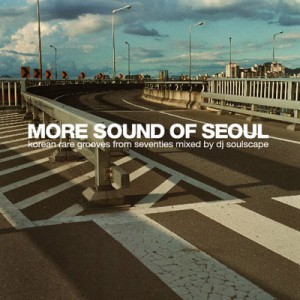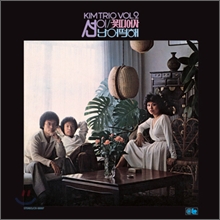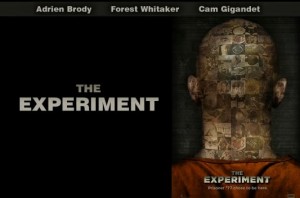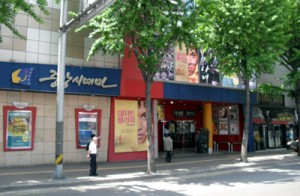Hi all. Just a little reminder about some updates going on over at my real blog — some music updates from Korea, an interesting video about motivation and money, and a bit of talk about PiFan.
Month: June 2010
One of my favorite things about Korea has always been the music, old and new. So now that I am back in the country for a bit, it is fun reconnecting to the music scene here.
First and best of all, I managed to get a copy of DJ Soulscape‘s More Sound of Seoul –40 short tracks, sampling a wide range of great Korean music from the 1970s. In a way, it is like the Korean version of Danger Mouse’s Grey Album. I like to think I know a bit about old Korean music, but this disc is full of cool tunes that I had never heard of before. As the liner notes state:
The postwar Korean Peninsula was a melting pot where different cultures from the east and west collide. The music business grew significantly as clubs were founded around the US military bases and many musicians playing for the clubs had interpreted and localized rock, jass, soul and boogaloo in various styles. However, such unique music was suppressed and vanished for the political interests of the military regime in the mid-70s and it still remains discontinued and underestimated. The Sound of Seoul project was conceived in order to revisit the Korean music of the ’70s.

There is a good interview with Soulscape here, along with a bunch of videos and other goodies. If you want a copy of More Sound of Seoul, you can apparently purchase it on this website.
I also picked up a reissue of the Kim Trio, a more disco-like ground from the 1970s. Have not had a chance to listen to it yet, but am looking forward to it much.

Oh, and I found a little interview with the weird electro duo EE over here. I did not know that Yunjung and Hyunjoon were married – neat. In addition to the interview, the link also has a bunch of videos of their music and performances. Fun stuff.
Just too bad about the King Khan and BBQ show going off the rails. Apparently the two performers’ relationship had been on the decline for quite some time, but it ended for good in the middle of their show in Daegu on Thursday evening. Made for some amusing chaos last night in Hongdae, as Sean (the promoter) tried to salvage the situation. Tough luck for Sean and the people at Supercolorsuper, who have been trying so hard at building up the music scene.
I am back in Korea again. The biggest difference between Korea and Spain? The light. It is 8pm and it is already dark here. Over in Spain, there are still signs of light in the sky at 10pm. For me, I prefer to have the additional light in the evening.
Okay, maybe that is not the biggest difference. But as I look out over western Seoul from my 12th floor window, that is the one that comes to mind.
* * *
By the way, the Puchon International Fantastic Film Festival had its big press conference yesterday, announcing their lineup for this year. While I was sad to miss it (after going to so many over the years), I was rather impressed by much of the selection.
PiFan has even managed to snag a World Premier for its opening night film — the Hollywood remake of THE EXPERIMENT, by Paul Scheuring (of the TV series Prison Break), and starring Adrien Brody, Maggie Grace and Forest Whitaker.
This year’s PiFan runs July 15-25.

There is a great video about motivation and what makes people produce the best ideas making the rounds, by Daniel Pink, author of the book Drive. He talks about scientific studies that say money is not a good motivator for most behaviors, and instead recommends Autonoyy, Mastery, and Purpose.
Although Pink is mostly talking about corporate environments and IT, this is also very interesting for the arts, like music and movies. It helps explain why, even though online file sharing has devastated music markets all over the world, it has not reduced the number of great bands and great music being made.
Of course, as Pink points out in his video, for motivation to move away from money to these other factors, basic subsistence is needed first. So for struggling artists, the picture is more murky.
Anyhow, it is a very fun video, just someone drawing on a white board, but very engaging.
One of Korea’s more famous, older cinemas, the Joongang, apparently closed on Monday (thanks to Darcy for pointing that out). Not a big surprise, I guess — its facilities were not the best, and the land under it, at the eastern edge of Myeongdong in downtown Seoul, is way too valuable. But there are not many theaters left in Seoul with any history anymore, so the end of the Joongang is something of a sad thing.

The Joongang was built in 1966 by the Byucksan Group. For most of its history, it was a second-string theater, showing movies after they had already played at the nicer cinemas in town. But in 1998 it was renovated, and turned into a multiplex, giving a new lease on life.
Like a lot of older, less popular cinemas in Seoul, the Joongang became a popular place for press screenings, so I used to go there a lot. I can remember seeing THE TWO TOWERS there, as well as OSEAM, GANGS OF NEW YORK, and many other films before the rest of the world got to see them. I think the last preview I saw there was a special screening of Hong Sangsoo’s NIGHT AND DAY (which was followed by typically Hong levels of drinking afterward).
(Note: To read about the closing of the last single-screen, old-style theater in Seoul, the Dream Cinema, you can click here).
I talked a bit about the Joongang in POP GOES KOREA. It is a story I told to illustrate the dysfunctional way movie distribution used to work in Korea, about the famous Korean producer Shin Chul, and the fight he had with the Joongang back in 1994 over his movie THE 101ST PROPOSITION and JURASSIC PARK. In honor of the theater’s memory, I will reprint that story here:
Back in 1994, one of downtown Seoul’s most important theaters, the Joongang Cinema, signed a deal with ShinCine Communications to distribute their film The 101st Proposition. The deal called for the Joongang to play the film a minimum number of weeks, with the exception that, should attendance drop below 1,500 people per day, the cinema could put in something else.
That same year, the film everybody wanted to see was Steven Spielberg’s Jurassic Park. The Joongang owner, like all other theater owners in Korea, was eager to get such an obvious blockbuster onto its screen. The 101st Proposition, however, was still under contract, and its attendance was not dropping below the lower limit of 1,500 people. At the time, even the biggest movies rolled out on few screens, usually just fifteen to twenty in the entire nation. In Seoul, a movie would show in only one or two theaters, so it took a long time for everyone who wanted to see a film to get in. With this much business at stake, getting the blockbuster of the year was a financial bonanza.
So the management at the Joongang took action. First they pulled their ads and promotions for The 101st Proposition, and attendance dropped a little. Next, the theater hired some thick-necked goons to stand out front to intimidate customers and prevent them from buying tickets. It did not take long for the film’s production company ShinCine to find out about this, but what could they do?
Luckily, ShinCine had good ties with many young progressives willing to stand up for Korean movies. Even in the 1990s, progressives in Korea were used to taking their lumps from the people in charge (be they government or private industry). Plenty of producer Shin Chul’s friends had recently gotten work as schoolteachers around the city, so a friend called up the teachers and invited them to bring their students to see the movie.
To further vex the Joongang, one person went to the bank and changed his regular won to thousands and thousands of one-won coins—each worth about one-tenth of a cent, still legal tender, although not in general circulation. With movie tickets costing about 4,000 won each, that added up to a lot of coins.
The students came to see the movie, carrying great bags of one-won coins, much to the consternation of the thick-necked gentlemen and their employer. By this point, the whole mess had turned into an event. The goons tried intimidating the schoolkids, which led to plenty of shrieking and mayhem. Other progressive friends of ShinCine came down to support the drive, such as the well-known and always politically inclined actor Moon Sung-keun (who also starred in the film). Moon stood on a chair, shouting out the importance of Korean culture and Korean movies, the need for the screen quota, and similar credos. The Joongang management called the protestors communists. It was chaos.
In the end, the Joongang got its Jurassic Park. Worried that the situation was escalating and that someone could get hurt, ShinCine’s owner/producer Shin Chul asked producer Lee Tae-won (then the top producer in Korea) to intervene. Lee negotiated with the Joongang Cinema, and they decided that the dinosaurs would get to play. In exchange, Shin was promised a prime slot for one of his movies the following summer.
Okay, this is a little late, but I just found out that POP GOES KOREA received a very nice review last October in Malaysia’s NEW STRAITS TIMES. (Sadly, I cannot find the link on the newspaper’s website anymore, so must link to the Findarticle version).
Actually, it is more of a summary than a full review, but the author, Johan Jaaffar, calls POP GOES KOREA “incredibly informative” and is generally positive of my book, so one is appreciative of kind words and publicity whenever and wherever they can be found. Thank you very much, Mr. Jaaffar.
Okay, this is a little late, but I just found out that POP GOES KOREA received a very nice review last October in Malaysia’s NEW STRAITS TIMES. (Sadly, I cannot find the link on the newspaper’s website anymore, so must link to the Findarticle version).
Actually, it is more of a summary than a full review, but the author, Johan Jaaffar, calls POP GOES KOREA “incredibly informative” and is generally positive of my book, so one is appreciative of kind words and publicity whenever and wherever they can be found. Thank you very much, Mr. Jaaffar.


